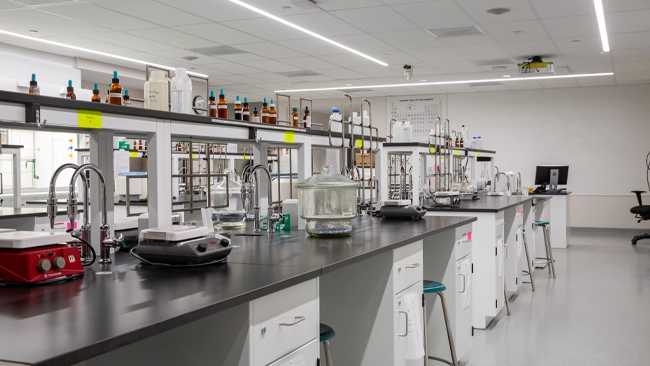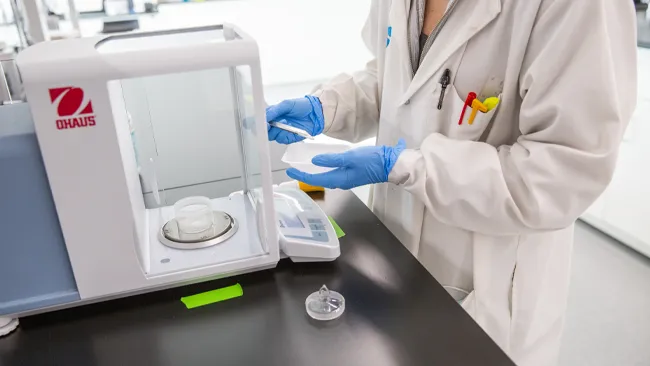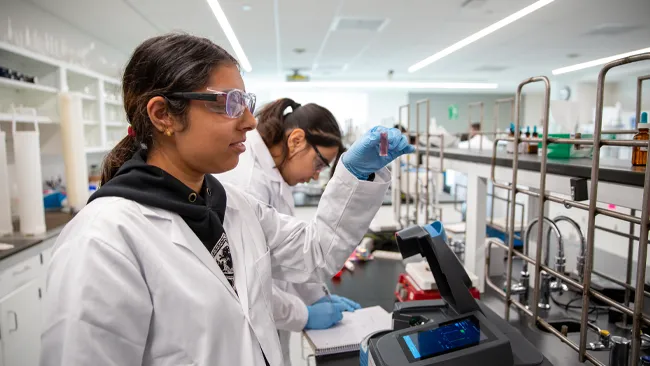
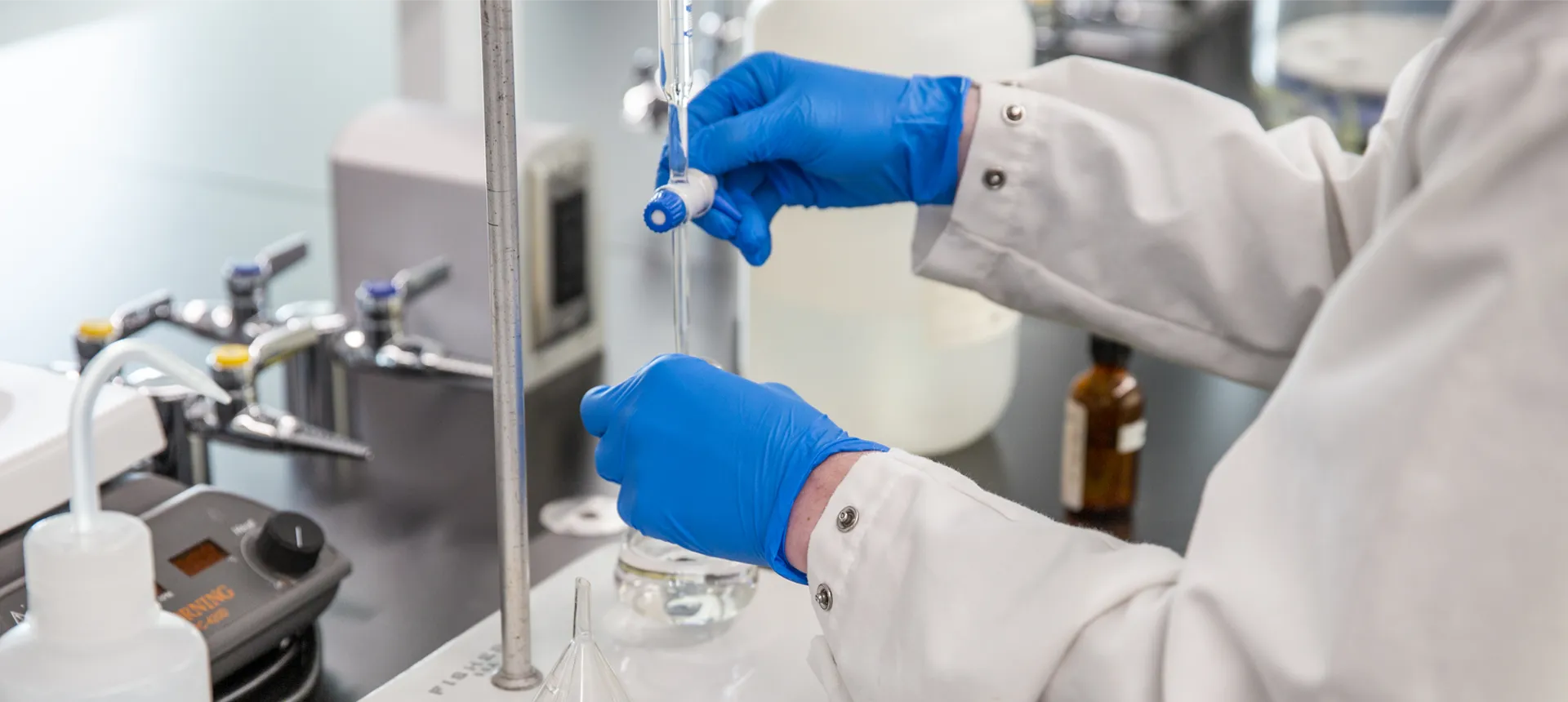
Cannabis, Natural Health Products & Biomaterial Applied Science
Overview
This one-year program provides focused, experimental education to meet the demands of the natural products, energy, and advanced materials industries.
Students in this one-year Ontario College Graduate Certificate program, study advanced concepts in chemistry, biochemistry, biology, physics, and mathematics applied to chemical analysis and complex problem-solving in a hands-on laboratory environment.
Students conduct tests and develop solutions to problems in analyses of raw materials, products or environmental samples, synthesize organic and inorganic compounds and prepare reports and technical documentation related to chemical analyses. Within the laboratory environment, graduates implement, coordinate and evaluate quality assurance and quality control procedures, in accordance with international and industry standards and government regulations. The program prepares students to analyze natural products, energy and advanced materials for quality and contribute to research and development.
Graduates may find employment as chemical laboratory technologists in a range of settings including, research laboratories, government agencies, educational institutions and technical sales, and in industries such as pharmaceutical and biotechnology, cosmetics and cannabis and natural health products, petroleum, mining, water and wastewater, solid waste, environmental protection, energy and food science.
Admission Requirements
- University degree, college diploma, advanced diploma, or equivalent in Science, Chemistry, Organic Chemistry, Biology, Microbiology, Environmental, Pharmaceuticals, Engineering, Instrumentation, Mathematics, or related fields of study
Meet Samantha
Samantha works in Lambton College's research department with research students from this program. Hear about the exciting things she works on in the lab.
Costs
- Year 1 $4,124.34
Please Note: These fees apply to the 2025-2026 academic year and are subject to change. Fees do not include books (unless specifically noted), supplies or living costs.
Additional Fees
-
Calculator (Sharp EL-W516XGB Advanced WriteView)$40.00
-
Lab Coat$20.00
-
Safety Glasses$10.00
-
Lab Notebook$10.00
Technology Requirements
In order to keep pace with the requirements of each and every course in your program, Lambton College requires that each student have access to a laptop while studying at our college.
Labs & Equipment
Courses
Natural Health Products
Interest in the use of natural products in pharmaceutical, nutraceutical, and functional food is growing rapidly. Cannabis legalization in Canada and around the globe has seen substantial growth in the interest of natural health products. In this course, students gain scientific insights in the area of natural health products, and active components of cannabis, ginseng and kombucha. This course focuses on preparing students as skilled employees for cannabis and other natural health product/nutraceutical product manufacturing companies through the integration of scientific concepts well as hands on skills of extraction, downstream processing and refining of active constituents, and product/formulation development of such active ingredients. Students will learn the skills of scientific literature review, laboratory experimentation, sample preparation and analysis, report writing, and presentation.
Reinforced Plastics
Engineered materials systems with the combined benefits of plastics and reinforcement are explored with an emphasis on natural product reinforcement; things like hemp, rice hulls and crystalline cellulose. The recycling benefits and technology are covered in general and as they pertain to these naturally sourced reinforcement materials.
Petrochemical & Polymer Chemistry
The petrochemical industry from extraction to processing into energy and materials products is covered in this course. Polymer chemistry and production is explored. Polymers and energy products (for example; bio-diesel and bio-ethanol) from renewable resources is also covered.
Analytical - Physical & Spectrometry Methods
The student will be introduced to good laboratory practices for analytical labs and appropriate lab record keeping. In each area listed next, both theory and practical understanding is developed. Physical methods of analysis will cover gravimetry, calorimetry and stress-stain evaluations. Electrochemcial methods of conductivity, and pH are covered and electromagnetic methods, focusing on infrared, Atomic Absorption, and Atomic Emission.
Proposal Writing
A student will work with a mentor to develop a proposal for their applied research project occurring in the next term. Steps in the proposal writing process will be covered.
Applied Lab Skills
In this course the leaning objectives are met through the lens of an applied research-based question. Students will work on a research problem through implementation of procedures and techniques explored in the preceding semesters of the program. Students will be involved in selecting the appropriate techniques, calibrating, and maintaining equipment, and producing valid data for analysis.
Applied Lab Analysis
In this course the learning objectives are met through the lens of an applied research-based question. Students will work to design and analyse experiments to solve and explore an identified applied research problem. Students will be responsible for evaluating the quality of the data, statistical analysis of the data, and considering if the data meets compliance of any relevant industry or government standards.
Scientific Communication & Dissemination I
A student will work with a mentor to plan, communicate and manage the solution to an applied research problem. The emphasis will be on presentation skills, project update creation and tailoring scientific background information for specific audiences.
Contact
Applied Science, Engineering Technology & Trades
Program Information
After Graduation
More Information
Empowering Women to Lead in Tech & Trades
Our Women in Technology & Trades (WiTT) is a vibrant community dedicated to empowering women to thrive in tech and trades. Through mentorship, industry connections, and skill-building programs, WiTT breaks down barriers and fosters an inclusive environment where women can confidently pursue their passions and careers.
Together, we’re shaping a diverse and dynamic future.
Learn more about WiTT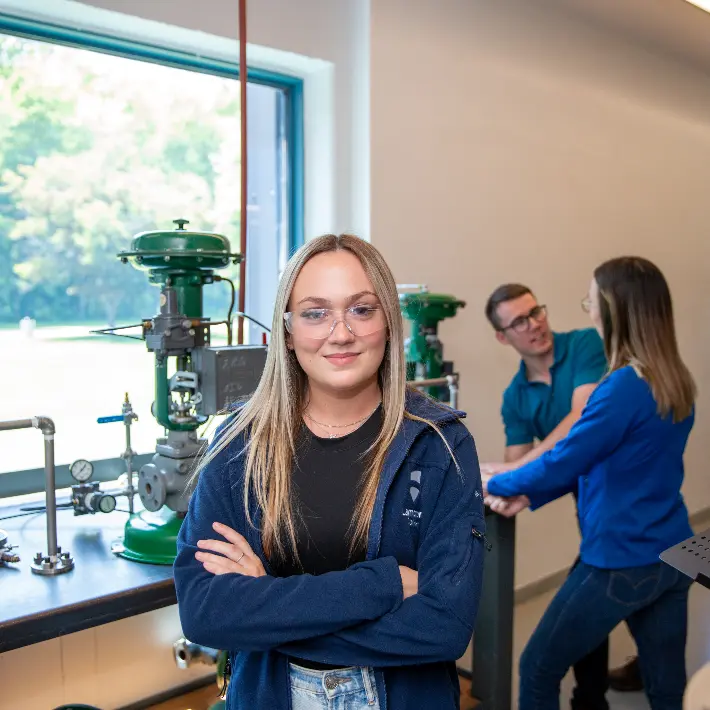
Technology Requirements
It is recommended that you use a Windows laptop for your coursework. While other devices like MacBooks or Chromebooks might work for some tasks, they may not support all the software required for your program. If you're unsure, check with your professors before buying.
Internet Speed Requirements
To get the best experience while learning online, we recommend having an internet connection with at least 40 Mbps download speed and 10 Mbps upload speed. This will help you use video calls, attend online lectures, and access other learning tools smoothly.
Because students live in many different areas, we can't suggest a specific internet provider. You'll need to check with local companies to find one that works best for you.
Laptop Requirements
In order to access the internet and virtually-delivered software and courseware, student laptops should include the following at a minimum. By meeting the following specifications, students will be equipped to access software and courseware on their laptop through the internet:
- Intel i5 8th Gen Processor or equivalent
- 8GB of RAM
- 100 GB HDD or more
- Webcam with a microphone
- Wi-Fi capable (802.11n/ac 5GHz)
- Windows 11 operating system
Mobile Device
Students will require a mobile device (smartphone) for:
- Accessing your digital student ID
- Using campus applications and services
Software
To ensure students are getting the most our of their classroom experience, some software will be required.
Lambton College has made this software easily accessible online. Students can leverage our Microsoft Office 365 software packages and services. In addition, much of the software you require for your courses will be available on demand for use on any device - on or off campus.
